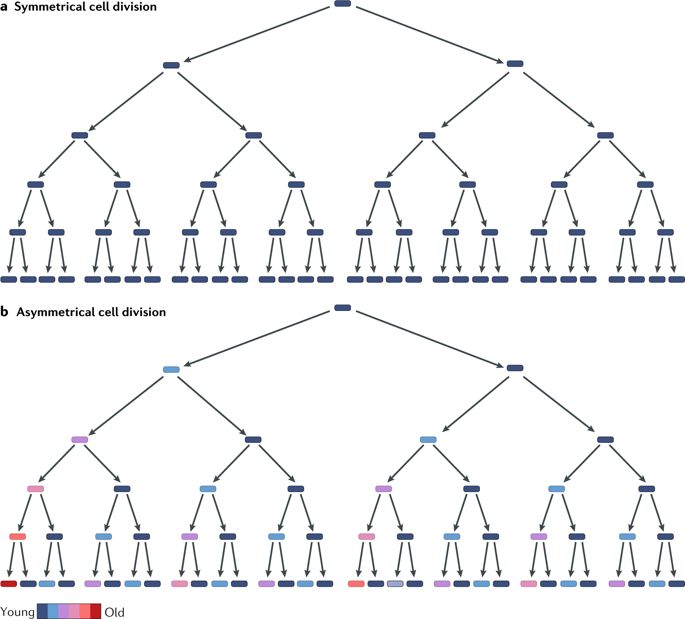当前位置:
X-MOL 学术
›
Nat. Rev. Microbiol.
›
论文详情
Our official English website, www.x-mol.net, welcomes your
feedback! (Note: you will need to create a separate account there.)
Microbial ageing and longevity.
Nature Reviews Microbiology ( IF 69.2 ) Pub Date : 2019-09-18 , DOI: 10.1038/s41579-019-0253-y Roy Z Moger-Reischer 1 , Jay T Lennon 1
Nature Reviews Microbiology ( IF 69.2 ) Pub Date : 2019-09-18 , DOI: 10.1038/s41579-019-0253-y Roy Z Moger-Reischer 1 , Jay T Lennon 1
Affiliation

|
Longevity reflects the ability to maintain homeostatic conditions necessary for life as an organism ages. A long-lived organism must contend not only with environmental hazards but also with internal entropy and macromolecular damage that result in the loss of fitness during ageing, a phenomenon known as senescence. Although central to many of the core concepts in biology, ageing and longevity have primarily been investigated in sexually reproducing, multicellular organisms. However, growing evidence suggests that microorganisms undergo senescence, and can also exhibit extreme longevity. In this Review, we integrate theoretical and empirical insights to establish a unified perspective on senescence and longevity. We discuss the evolutionary origins, genetic mechanisms and functional consequences of microbial ageing. In addition to having biomedical implications, insights into microbial ageing shed light on the role of ageing in the origin of life and the upper limits to longevity.
中文翻译:

微生物的衰老和长寿。
长寿反映了随着生物体的衰老,维持生命所必需的体内稳态条件的能力。长寿生物不仅必须应对环境危害,还必须应对内部熵和大分子损害,这些损害会导致衰老过程中失去适应能力,这种现象被称为衰老。尽管对于生物学中许多核心概念至关重要,但衰老和长寿主要是在有性繁殖的多细胞生物中进行的。但是,越来越多的证据表明微生物会衰老,并且还可能表现出极长的寿命。在这篇评论中,我们整合了理论和经验方面的见解,以建立关于衰老和长寿的统一观点。我们讨论了微生物老化的进化起源,遗传机制和功能后果。
更新日期:2019-09-18
中文翻译:

微生物的衰老和长寿。
长寿反映了随着生物体的衰老,维持生命所必需的体内稳态条件的能力。长寿生物不仅必须应对环境危害,还必须应对内部熵和大分子损害,这些损害会导致衰老过程中失去适应能力,这种现象被称为衰老。尽管对于生物学中许多核心概念至关重要,但衰老和长寿主要是在有性繁殖的多细胞生物中进行的。但是,越来越多的证据表明微生物会衰老,并且还可能表现出极长的寿命。在这篇评论中,我们整合了理论和经验方面的见解,以建立关于衰老和长寿的统一观点。我们讨论了微生物老化的进化起源,遗传机制和功能后果。











































 京公网安备 11010802027423号
京公网安备 11010802027423号